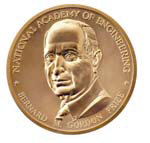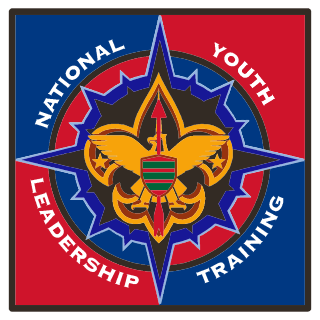Related Research Articles

Problem-based learning (PBL) is a student-centered pedagogy in which students learn about a subject through the experience of solving an open-ended problem found in trigger material. The PBL process does not focus on problem solving with a defined solution, but it allows for the development of other desirable skills and attributes. This includes knowledge acquisition, enhanced group collaboration and communication.
Gifted education is a broad group of special practices, procedures, and theories used in the education of children who have been identified as gifted or talented.

Experiential education is a philosophy of education that describes the process that occurs between a teacher and student that infuses direct experience with the learning environment and content. The term is not interchangeable with experiential learning; however experiential learning is a sub-field and operates under the methodologies of experiential education. The Association for Experiential Education regards experiential education as "a philosophy that informs many methodologies in which educators purposefully engage with learners in direct experience and focused reflection in order to increase knowledge, develop skills, clarify values, and develop people's capacity to contribute to their communities". Experiential education is the term for the philosophy and educational progressivism is the movement which it informed. The Journal of Experiential Education publishes peer-reviewed empirical and theoretical academic research within the field.

The Education Program for Gifted Youth (EPGY) at Stanford University was a loose collection of gifted education programs formerly located within Stanford Pre-Collegiate Studies program. EPGY included distance and residential summer courses for students of all ages. Many of the courses were distance learning, meaning that courses were taught remotely via the Internet, rather than in the traditional classroom setting. Courses targeted students from elementary school up to advanced college graduate. Subjects offered included: Mathematics, English, Humanities, Physics, and Computer Science. Stanford Pre-Collegiate Studies is similar to the Center for Talented Youth at the Johns Hopkins University in terms of certain objectives. The EPGY courses themselves were offered by a number of institutions including Stanford and Johns Hopkins.
Summer school is a school, or a program generally sponsored by a school or a school district, or provided by a private company, that provides lessons and activities during the summer vacation. Participation in summer schools has been shown to have substantial beneficial effects on education.
Roberta "Bobbi" DePorter is the President of the Quantum Learning Network (QLN) and co-founder of the SuperCamp program.

Outdoor education is organized learning that takes place in the outdoors. Outdoor education programs sometimes involve residential or journey wilderness-based experiences in which students participate in a variety of adventurous challenges and outdoor activities such as hiking, climbing, canoeing, ropes courses and group games. Outdoor education draws upon the philosophy, theory, and practices of experiential education and environmental education.

The Bernard M. Gordon Prize was started in 2001 by the United States National Academy of Engineering. Its purpose is to recognize leaders in academia for the development of new educational approaches to engineering. Each year, the Gordon Prize awards $500,000 to the grantee, of which the recipient may personally use $250,000, and his or her institution receives $250,000 for the ongoing support of academic development. Although the Gordon Prize is relatively new, within engineering education, it is viewed by many to be the American equivalent of the Nobel Prize.

National Youth Leadership Training, often called NYLT, is the current youth leadership development training offered by the Boy Scouts of America. The program is conducted at the council level over six days for Scouts, Venturers, and Sea Scouts. The program has been open to all genders since 2010. This training is a part of the national organization's leadership training program and is designed to mirror themes found in Woodbadge, which is the BSA program for adult leadership training.
The Quantum Learning Network (QLN) is an education and training organization based in Oceanside, California. Prior to 2005, the organization was known as the Learning Forum.

The Air War College (AWC) is the senior Professional Military Education (PME) school of the U.S. Air Force. A part of the United States Air Force's Air University, AWC emphasizes the employment of air, space, and cyberspace in joint operations. Headquartered at Maxwell Air Force Base in Montgomery, Alabama, its higher headquarters is the Air Education and Training Command (AETC) at Randolph Air Force Base in San Antonio, Texas. It is one of six war colleges within the U.S. Department of Defense's Joint Professional Military Education (JPME) Phase II Education Program for commissioned officers.
Envision EMI, LLC is a privately held, for-profit, tuition-based education company that creates, markets, and runs career exploration and leadership development programs for students in elementary school through college. The company manages twenty unique summer educational programs, including programs in Government and Leadership, Law, CSI, Medicine, Mass Media, Gaming and Technology, Engineering, National Security, Business Innovation, and Early STEM Exploration. Many of Envision's programs are held at university and college campuses. In addition, the company has collaborated with several national universities, including Stanford University for its Advanced Emergency Medicine and Intensive Law & Trial programs, Rice University for the Rice University Aerospace & Aviation Academy, and George Mason University for its Game & Technology Academy.

The White Stag Leadership Development Program, founded in 1958, is a summer leadership training program for youth 10 1/2–18 led by two California-based non-profits that sponsor leadership development activities. The teen youth staff of the two programs develop and produce several week-long leadership summer training sessions every year for several hundred youth from Central and Northern California and a few youth from other states and countries. The outdoors program is based on hands-on learning methods to develop competencies.
Writing across the curriculum (WAC) is a movement within contemporary composition studies that concerns itself with writing in classes beyond composition, literature, and other English courses. According to a comprehensive survey performed in 2006–2007, approximately half of American institutes of higher learning have something that can be identified as a WAC program. In 2010, Thaiss and Porter defined WAC as "a program or initiative used to 'assist teachers across disciplines in using student writing as an instructional tool in their teaching'". WAC, then, is a programmatic effort to introduce multiple instructional uses of writing beyond assessment. WAC has also been part of the student-centered pedagogies movement seeking to replace teaching via one-way transmission of knowledge from teacher to student with more interactive strategies that enable students to interact with and participate in creating knowledge in the classroom.

The California Association of Student Councils (CASC) is a non-profit, student-led youth leadership and advocacy organization. Founded in 1947 by the California Department of Education and now-Association of California School Administrators, CASC has provided a multitude of conferences to students, advisors, and professionals in both California and around the world.

All branches of the United States Armed Forces use the general term Enlisted Professional Military Education (EPME) to describe the formal system of education which each branch provides to its enlisted personnel. Each branch has its own system and sequence of courses, with the overall focus on leadership and management. Education generally increases in intensity and level of knowledge as individuals progress in rank and assume broader leadership roles. EPME is distinct from the technical training which service members receive for their Military Occupational Specialty (MOS), Air Force Specialty Code (AFSC), or Navy Rating.
The Gifted Education Research Resource Institute (GERI) is a multidimensional center dedicated to the study, discovery, and development of human potential. It was founded by John F. Feldhusen in 1977 and is situated in the College of Education, Purdue University in West Lafayette, Indiana. GERI's mission is holistic development of giftedness, creativity, and talent among individuals throughout their lifespan. This is accomplished through enrichment programs for talented youth, graduate programs for future scholars and leaders, professional development and coursework for educators, and ongoing research on the psychology of giftedness, creativity, and talent development. GERI faculty and staff work with P-12 educators in developing and improving services for gifted, creative, and talented children, as well as training school teachers and administrators in gifted education. In addition, GERI has developed several programs for talented youth. The Super Saturday program, a six-week enrichment program, was created in the spring of 1976. In 1977, GERI began Summer Residential Camps, aimed at providing a preview of college life to talented students.

The Army Reserve Officers' Training Corps (AROTC) is the United States Army component of the Reserve Officers' Training Corps. It is the largest Reserve Officers' Training Corps (ROTC) program which is a group of college and university-based officer training programs for training commissioned officers for the United States Army and its reserves components: the Army Reserves and the Army National Guard. There are 30,000+ Army ROTC cadets enrolled in 274 ROTC programs at major universities throughout the United States.

C-STEM is a UC Approved Educational Preparation Program for Undergraduate Admission for all UC campuses, meaning that participation in the C-STEM program is recognized in the UC admissions process as achievements that have explicitly prepared students for college and career. C-STEM has University of California A-G Program Status. High schools can easily add the A-G approved rigorous C-STEM curriculum to their own school’s A-G course lists to satisfy the UC/CSU admission requirements.

The PERMATApintar National Gifted Center, UKM, more commonly known as the Malaysian National Gifted Centre, UKM is a gifted center that provides education services for gifted and talented Malaysian students aged 12 – 17 in Malaysia. It was established by University Kebangsaan Malaysia to support the Malaysian Gifted and Talented Program mooted by Datin Seri Rosmah Mansor in 2009. ; wife of the former Prime Minister of Malaysia, Dato' Seri Najib Razak. Universiti Kebangsaan Malaysia under the leadership of then Vice Canselor, Tan Sri Dato Wira Dr. Sharifah Hapsah binti Syed Hasan Shahabudin was appointed as the implementer of the program. Professor Datuk Dr. Noriah Mohd Ishak was then appointed as the first Director of the Malaysian National Gifted Center Pusat PERMATApintar Negara, UKM. Her role was to develop assessment tools to search for the gifted and talented, develop the academic pathways for gifted and talented Malaysian children, develop a comprehensive and challenging curriculum for the gifted and talented Malaysian students and implement the program effectively with the support of UKM, for the benefit of gifted and talented Malaysian students. It is the only programme in Malaysia that identifies academically gifted and talented students. PERMATApintar currently offers three programmes: the Summer Camp programme (PPCS), the PERMATApintar College programme, and the ASASIpintar programme.
References
- 1 2 Kathleen Carroll (14 October 2014). A Guide to Great Field Trips. Skyhorse. pp. 131–. ISBN 978-1-62914-972-1.
- ↑ Marius Boboc; R. D. Nordgren (2010). Case Studies in Elementary and Secondary Curriculum. SAGE. pp. 100–. ISBN 978-1-4129-6055-7.
- ↑ John Parks Le Tellier (27 October 2006). Quantum Learning & Instructional Leadership in Practice. SAGE Publications. pp. 207–. ISBN 978-1-4833-6005-8.
- ↑ Gordon Dryden; Jeannette Vos (1994). The Learning Revolution: A Lifelong Learning Programme for the World's Finest Computer : Your Amazing Brain . Jalmar Press. ISBN 978-1-880396-34-6.
- ↑ Skinner, Caroline (2019-08-24). "Mirrors SuperCamp at Stanford". The Royal Gazette. Retrieved 1 September 2019.